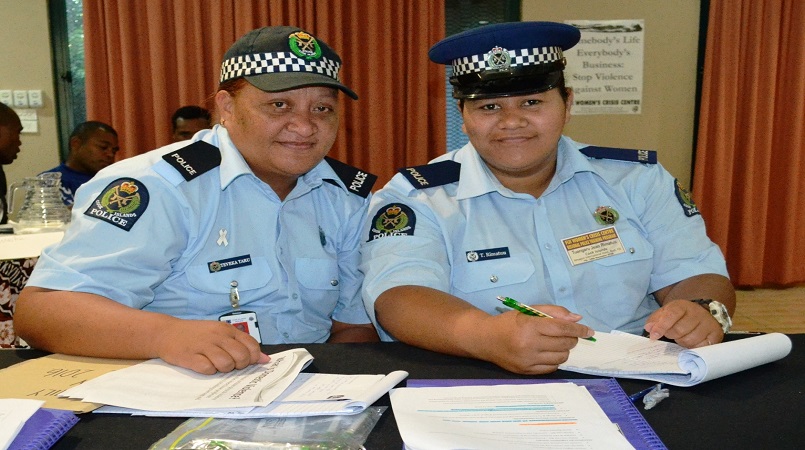
Sexual harassment is a problem in the Pacific but very little data exist to give a true picture of the extent of the problem.
A cohort of 30 police officers from 11 Pacific countries are attending the training workshop to help them understand violence against women and to deal sensitively with such cases.
Police officers attending the Fourth Police Regional Training Program discussed sexual harassment and rape as part of the two-week workshop.
Funded by the Australian Federal Police and facilitated by the Fiji Women’s Crisis Centre, the training course aims to equip officers with a thorough understanding of gender dynamics, the causes of violence against women and the relevant laws designed to combat gender-based violence.
The officers acknowledged that their institutions, like other organisations, have a sexual harassment problem.
Sometime those subjected to sexual harassment are unaware that they do not have to tolerate unwanted sexual behaviour.
The participants discussed the importance of having a sexual harassment policy in their workplaces so that everybody was clear on what was acceptable and unacceptable behaviour.
Asked if the officers’ organisations had sexual harassment policies and whether they had seen them, many of the participants were unsure or said they did not have such policies.
The training facilitator, FWCC Coordinator Shamaima Ali, warned the participants not to participate in or ignore sexual harassment because in serious cases such behaviour could lead to rape.
Officers shared the experiences in their countries, including the similarities of in-house complaints of sexual harassment as well as the laws in place to tackle the problem.
Several officers reported the laws in their country had now been strengthened to increase sentencing tariffs and widening definitions of sexual harassment and other sexual offences.
Other discussions focused on myths about what causes rape, including the myth that how women were dressed or behaved caused the rape. Police officers acknowledged they inadvertently shifted the blame to the survivor of rape instead of focusing on the criminal offence committed by the perpetrator.
The workshop will end on the 18th of November and is being held at the Hexagon Hotel in Nadi
